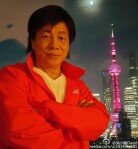A Handshake Between the Tiger and the Dragon
A Handshake Between the Tiger and the Dragon
Posted March. 15, 2005 22:32,
Neighboring countries seem to have difficulty getting along well. China and India, which share a 3,500km border, are no exception. India, often called an elephant, has very subtle emotions toward China. While Indians regard themselves as victims of conflicts with China over territory, they see China as a rival with a sense of superiority, believing, They have been better off than Chinese barring a short period of time, 200 years ago.
That does not make any sense when it comes to figures. In 2003, Chinese per capita income was 1,100 dollars while Indias was only 530 dollars. China recorded 9.7 percent yearly increases in GDP from 1991 to 2003, while India only recorded 5.8 percent during the same period. Some people see that the reach of the worlds dragon to the peak is a matter of time. However, India has confidence since it has a potential resourceits population.
India is almost the only country that is expected to have an increase in population 50 years from now. The increasing rate of population in India is 1.6 percent, two times more than that of China, and the average age of the nation is 26 years old, which is quite young compared to Chinas 33 years old. It is certain that its economic explosive power will be huge if it jumps into the labor market. In recent days, one million Indian IT engineers armored with good English have taken the jobs of people in advanced countries. Under the circumstances, the Economist, a prominent British magazine, said, India is no longer a heavy elephant, its a tiger. Meanwhile, China is considered almost the only country that may be a poor country before becoming a rich country, in contrast to other developed countries. The nation is likely to experience a decrease in labor force in the mid 2020s owing to its too successful one-child policy.
Nevertheless, Indian Prime Minister Manmohan Singh declared the China Model earlier this year. The declaration is based on the analysis that India cannot survive in the competing world economy without reducing red tape in which people have to spend 89 days to open a new business, compared to China, where it takes only 41 days to start a fresh business.
A dragon and a tiger shake hands in order to combine information technology engineers Techno Cooley, and The Worlds Factory. There are more lessons that we can learn than just deregulation reform from the cooperation of the tiger and the dragon, rather than the well-matched contest of the two. People should learn that giving birth and education are more powerful weapons than devising nuclear programs.
Kim Sun-deok, Editorial writer, yuri@donga.com



![납중독 사망 50대, 원인은 ‘낡은 보온병에 담은 커피’[알쓸톡]](https://dimg.donga.com/c/138/175/90/1/wps/NEWS/IMAGE/2026/01/19/133182417.3.jpg)



